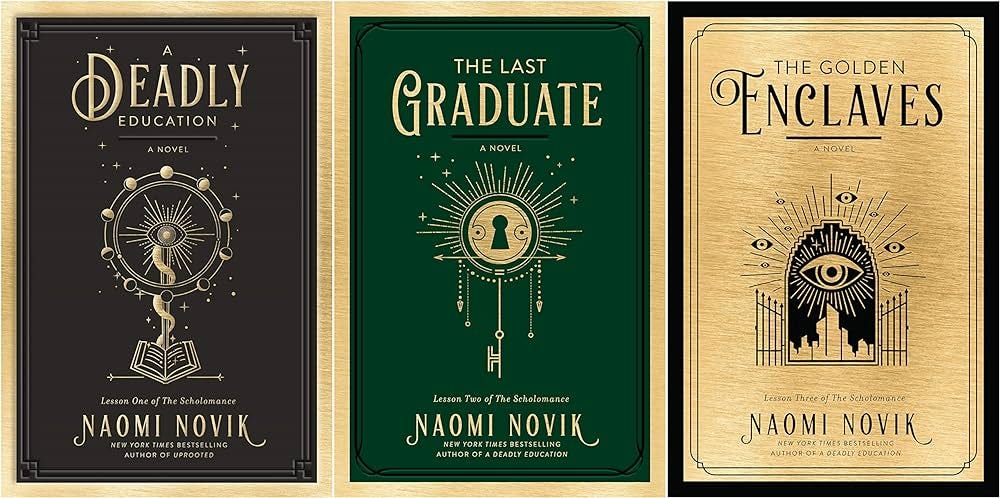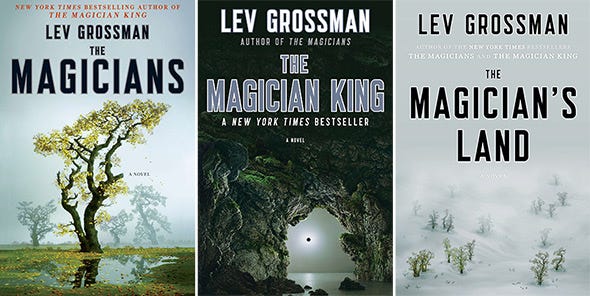Everything is frivolous right now, but here’s a post about nothing.
~~~~~~~~~~~~~~~~~~~~~~~~~~~~~~~~~~~~~~~~~~~~~~~~~~~~~~~~~~
Ayin.
Nothingness.
Something about creation in a void gives me such frisson.
In Naomi Novik’s Scholomance series, magicians create tangible physicality in “the void”: places to live, a high school for magic (the titular Scholomance). They can make something out of nothing (though it’s a lot more stable if it’s a place in reality, like the original Penn Station that they stole).
In Kim Harrison’s The Hollows – a series for which my love has been well-documented – the Ever After is a bubble superimposed on reality that the demons created when they were banished. (Later it’s destroyed and recreated, etc. etc.) Rachel Morgan spends her career fighting the perception that all demon magic is dark.
In Lev Grossman’s The Magicians – again, my love for it is previously documented – Quentin loses Alice and then finds her again in a mirror image of reality that he builds. (It all feels a bit more sinister than the former two.)
There’s something intoxicating to me about a world where you can push magic to its limit. In most magical worlds – think Harry Potter – you can’t create something out of nothing. Energy is made into energy, things are transformed or transmogrified, matter into matter. Magic basically does things we can already do, only quicker and/or better.
Anyone who reads fantasy recognizes the need for an ironproof rulebook for magic.
Novik’s first few chapters are chockfull of sloggy exposition that could certainly have been done more smoothly, but it really shows how much thought she put into the Scholomance world.
Now think of a book or a movie where characters just crop up with unheard-of powers, or too-convenient powers, or things that weren’t possible in the first season that are suddenly possible in the third.
Think of American Horror Story: Coven (2013), where by the finale everyone has every power when in the pilot they say it’s only the Supreme who has all seven. Think of Practical Magic (1998) – a delightful movie, don’t get me wrong – where you’re basically coasting along in this world with no clue as to what can and can’t be done with magic. Raise the dead? No! Actually, yes. But it’s baaaaad.
The muzh and I are in the middle of Bodies (2023) on Netflix, and the question of how this one body time travels to four different places is so good. We’re both on tenterhooks waiting for the reveal, because neither of us trusts that it will match the mystery.
But if magic exists, shouldn’t it be as potent as God?
What would we do with the power of God?
Isn’t the point of inventing magical worlds to push the limit? To do the kinds of things that are impossible in our own lives?
God created yesh me’ayin.
These aforementioned voids are their own mini creation stories, man acting as God.
And it’s so deliciously subversive to think of it like that, all these stories quietly playing with divinity in man’s hands, that it just sets my imagination free.
Or maybe I love these stories because sometimes when I’m writing, whether it’s the actual practice, submitting the pieces to various literary magazines, or even the act of writing these newsletters, that feels a bit like screaming into the void.
Like maybe I’m improving with every piece, but also like I might be wasting precious time that could be devoted elsewhere.
Certainly, writing can feel like a creation story. When the flow gets going. When I read back my work and I don’t cringe. Then, writing has its own set of powers. I’m not creating a new reality, but I am making something new. And even if nothing comes of it, at least I can be nourished by that act of creating.
If I could just get over myself.





